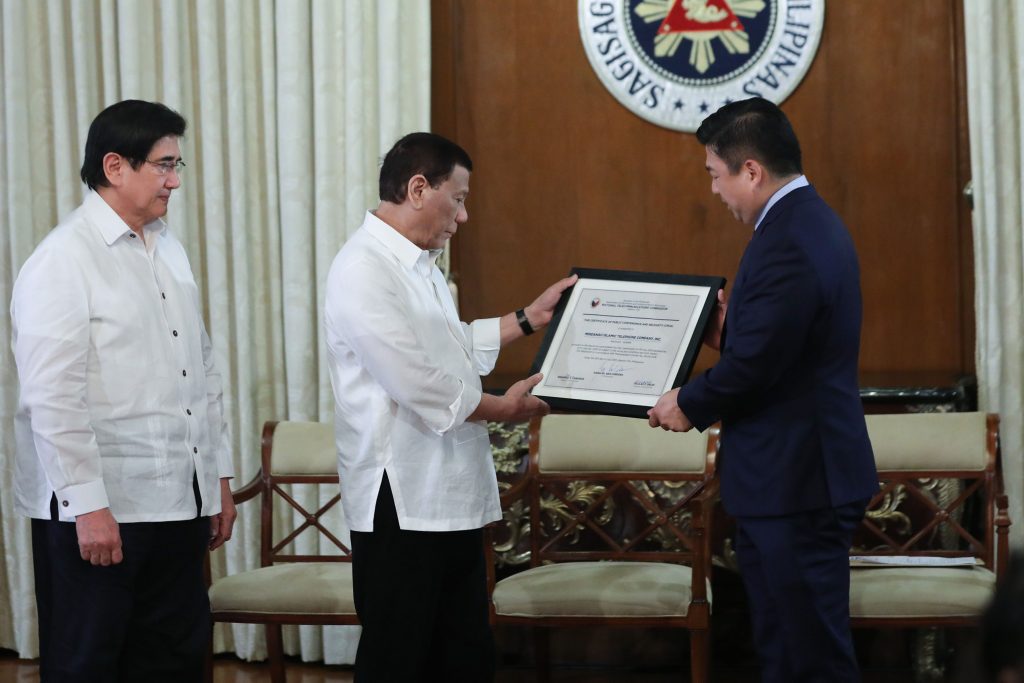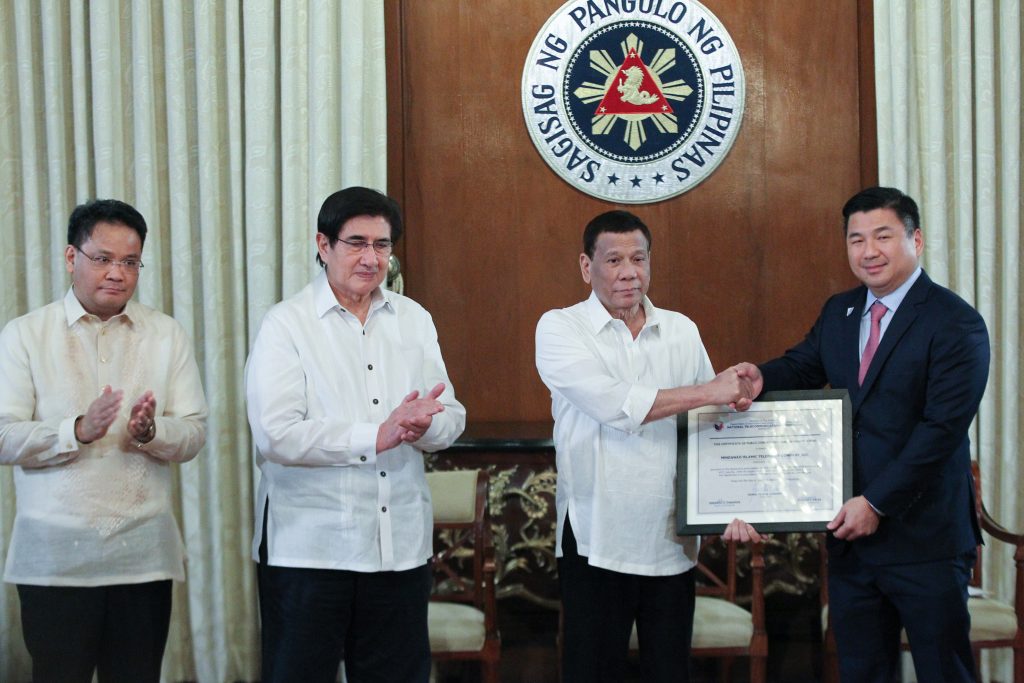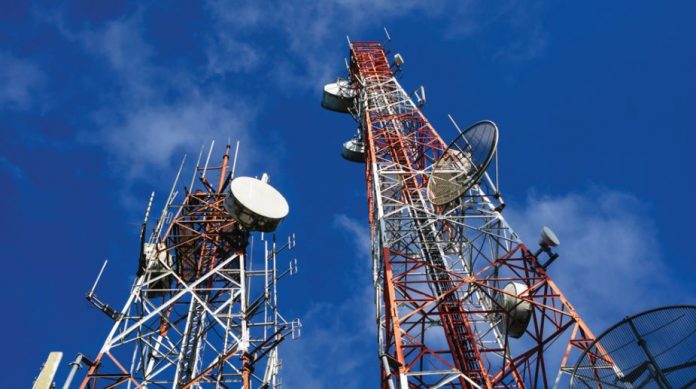In early September 2019, Reuters reported that the Philippines has given a China-backed telecoms company the greenlight to install telecommunications cell towers inside the country’s Army bases.
The Armed Forces of the Philippines (AFP) has signed a preliminary agreement with “Mislatel, a consortium controlled by Philippine tycoon Dennis Uy, to install communications facilities and towers at its camps and installations.
“Uy, a close associate of President Rodrigo Duterte, was awarded the country’s third telecoms license last year, helped by the last-minute withdrawal or disqualification of other bidders.
“His two holding companies, which have no prior experience in telecommunications, have partnered with China Telecom, which currently owns a 40% stake, the maximum permitted under an archaic Philippines law that the government has promised to amend to support foreign investment.”
All this comes in the heels of heightened cybersecurity concerns involving Huawei Technologies, according to the report, one of the world’s largest telecommunications firms which landed in the U.S. trade blacklist early last year.
Huawei has denied allegations that its equipment can be used for possible digital espionage, so has Mislatel, saying in an interview with Reuters that it “guarantees that the devices, equipment, and/or structures installed at the site provided by the AFP shall not be used to obtain classified information”.
To further appease the public’s growing concerns, in a recent statement, the China-backed Dito Telecommunity Corporation said it tapped Fortinet, “a global leader in broad, integrated, and automated cybersecurity solutions,” as the company’s primary cybersecurity provider.
Risks and promises
Some lawmakers saw a correlation in the entry of the China-backed telecoms in the country with the Trojan Horse of old Greek myths, particularly the war between the kingdoms of Troy and Mycenaean Greece.
In the story, the Greeks used a huge wooden horse to enter the city of Troy after an unsuccessful 10-year siege. It was an act of subterfuge on the part of the Mycenaean army to get its troops within the independent city’s walls.
The story was mentioned in part in Homer’s book, “The Odyssey”.
National Security Adviser Hermogenes Esperon was quick to downplay allegations of espionage should the telecom towers go full throttle.

In an interview with Inquirer.Net, Esperon said, “They’ll go inside the camp, their towers will be under our control. We should be glad instead. I recommended that all schools, all municipalities, all villages should have towers. What is the benefit of that? There will be wide coverage, won’t there be? Because we already know what we need.”
Esperon added that “Dito would be allowed only in camps where network providers Globe and Smart have cell site towers, too.”
Defense secretary Delfin Lorenzana took the debate further by saying that building the cell towers inside military camps, more so those stationed in the provinces, would provide Dito cell sites the needed protection.
The same is true with Globe and Smart telecoms whose towers were allowed inside military camps since the 1990s in order to enjoy “protection from communist insurgents”.
According to the South China Morning Post, the Dito project “presented an ambitious 257 billion peso (US$5.29 billion) plan to deliver speeds of at least 55 Mbps to 80 percent of the population by the end of its five-year commitment in July 2024 – on par with the government’s demands during the auction for an operating licence.”
The offer comes as a very sweet deal in light of what has been considered the dismal performance of the two other telecom companies operating in the Philippines.
According to a report by CNN Philippines in June this year, “More dismal is the local download speeds: mobile connections yield about 7 Megabits per second (Mbps), while fixed broadband speeds average 26 Mbps.
“For Asean, the average download rates are at 13 Mbps for mobile and 59 Mbps for fixed broadband. Filipinos also pay more despite the slower service they are getting – the fourth highest cost at $6.30 (about ₱315) per 500 megabytes of prepaid mobile connection. The lender pointed out that the cost of fixed broadband plans here is close to the fees paid in Singapore and Thailand, home to the fastest internet speeds in the region.”
After holding the longest quarantine in the region—a whopping six months and counting—several activities like school classes, business transactions and meetings have now shifted online, raising issues of slow internet download and upload speeds.
In fact, in July, a Senate hearing on internet speed was disrupted because of extremely poor connections, leaving lawmakers unable to understand each other, and worse, cut off from the discussions. Sen. Grace Poe suspended the hearing earlier than expected.

Is Dito a Trojan Horse?
The question of Dito Telecommunity being a “Trojan Horse” should not even be a cause of concern, many netizens said in jest. Many fear that President Rodrigo Duterte’s friendship with Xi Jinping has already compromised sensitive information about the country.
When the issue of Dito erupted, netizens poked fun at the idea of putting up China-backed cell sites in military bases to conduct espionage, saying why even bother going into all that trouble of spending tens of billions when all they must do is ask the President?
It should be noted, however, that for the Chinese Communist Party (CCP), business and politics go well hand-in-hand. According to a BBC report in July this year, Chinese politics is behind the push for a Chinese agenda in several countries.
To quote, “A dossier reportedly compiled with the help of a former MI6 spy has accused China of trying to manipulate key UK figures, including politicians, to back the telecom giant’s business in Britain. Every major Chinese enterprise anywhere in the world allegedly has an internal ‘cell’ answerable to the ruling Chinese Communist Party (CCP) to drive the political agenda and ensure that the company is compliant with political directives.
“This is why China experts assert that the CCP does operate here in Britain, often under the natural cover of business. ‘The Party machine is everywhere’, says one, adding: ‘For China, business is inseparable from politics.’
In third quarter last year, Reuters reported a string of attacks against telecom companies by Chinese hackers.
China’s ability to access telecoms user data “has also become an increasingly valuable spying resource as the widespread use of encrypted messaging platforms has made it harder to intercept and monitor communications, said John Hultquist, director of intelligence analysis at U.S. cybersecurity company FireEye.”
“‘The Chinese state uses the full spectrum of government levers to acquire information. This ranges from targeted and large-scale cyber espionage and theft to co-opting industry experts, both knowingly and unknowingly,” the report added.
With the kind of treatment the Philippines has faced from China in the disputed region within the West Philippine Sea, it is only right to doubt the intentions of Dito as it plans on putting up cell sites inside Philippine military camps.
In today’s world, cyber espionage is a real and indisputable security threat. To even say that espionage activities remain to be seen puts the country in a very vulnerable state. By the time we find out, it would be too late.
This does not, however, exonerate existing telecoms companies in the Philippines from getting their act together.
Because of Covid-19, the world has shifted online. Either these telecom companies improve or they would in part be responsible in putting the country in harm’s way.
Joel Pablo Salud is an editor, journalist and the author of several books of fiction and political nonfiction. The views and opinions expressed in this article are those of the author and do not necessarily reflect the official editorial position of LiCAS.news.









